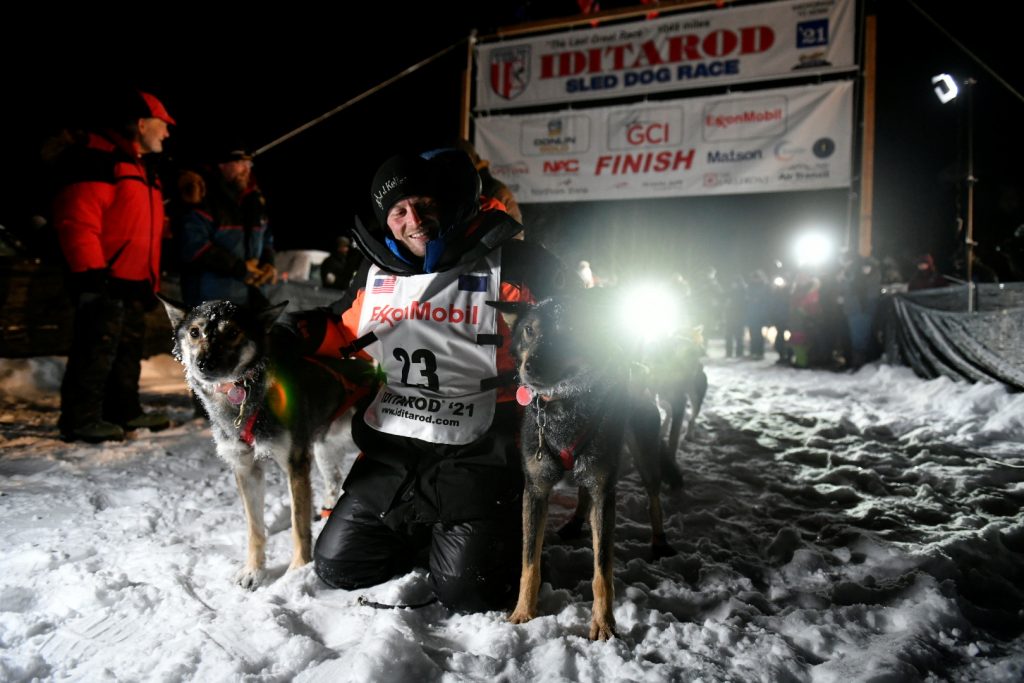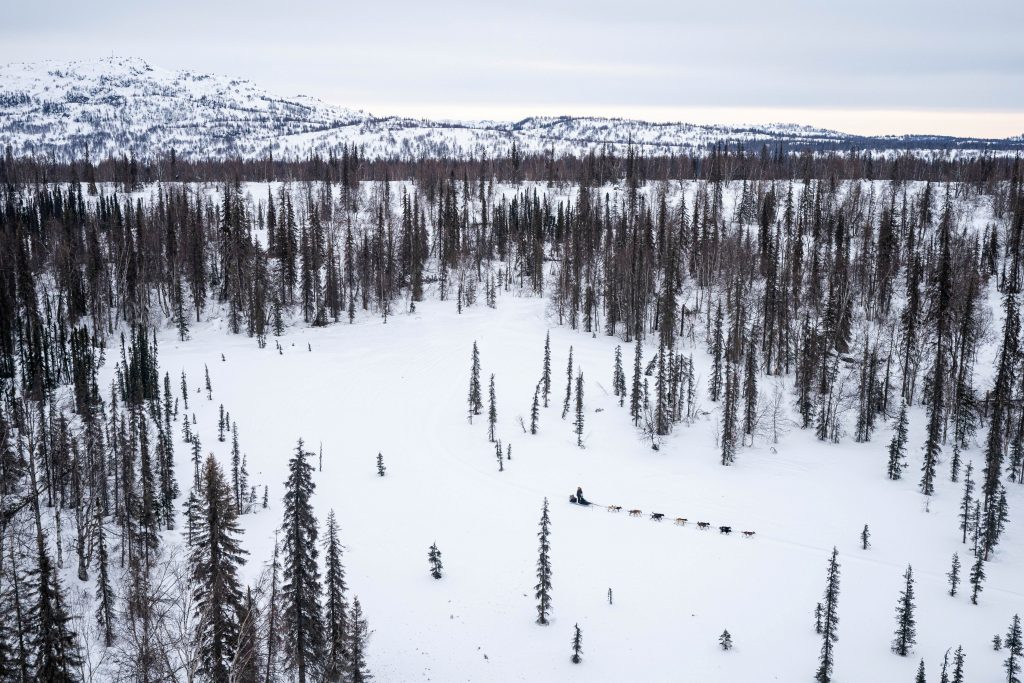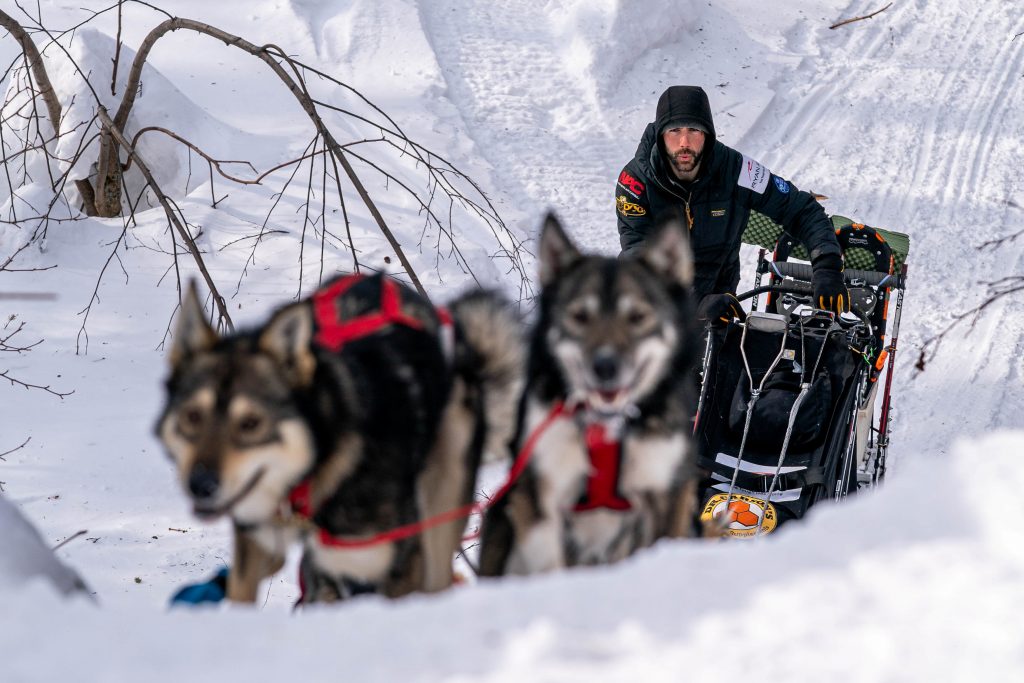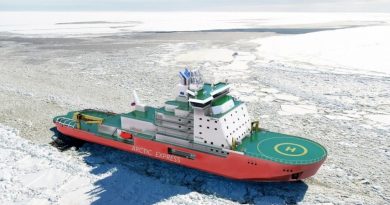Dallas Seavey wins 5th Iditarod

DESHKA LANDING — An unusual Iditarod Trail Sled Dog Race ended early Monday with a familiar champion.
Talkeenta’s Dallas Seavey and his 10 sled dogs dashed to the finish line near Willow at 5:09 a.m.
Wearing an orange parka, Seavey kicked to the finish behind a perky string of sled dogs.
This is Seavey’s fifth Iditarod win, tying him with Rick Swenson for the most Iditarod victories ever. Swenson has held the record alone since 1991.
Asked to summarize how he felt about his fifth win, Seavey said, “Comes after four, I guess.”
It’s a big deal, the 34-year-old Seavey admitted. Since becoming the youngest Iditarod musher to win in 2005 at the age of 25, people had predicted he might go on to win five.
“I’ve always said, ‘I’m going to get the next one. And someday five might be the next one,’ and that’s today,” Seavey said. “We got it, and that’s huge, man. I’ve looked up to Iditarod champions my whole life, and I’ve dreamed about this my whole life. Now, to see it happen, that’s pretty cool.”
Even before Monday’s historic win, Seavey had an impressive mushing resume.
The former world-class wrestler ran his first Iditarod at age 18 and took his first championship in 2005. Then, he won the race again and again and again.

Sled-dog racing is something Seavey has always known.
His grandfather competed in the first Iditarod, and his dad has won it three times.
His family met him at the finish line early Monday, including his dad, Mitch Seavey, who isn’t racing this year, and his grandpa, Dan Seavey, who ran the first Iditarod nearly 50 years ago.
This year is Seavey’s first Iditarod since 2017, when a dog-doping whodunit turned his mushing career upside down, and he sat out of the race in protest.
Before this year’s Iditarod, Seavey said he was returning to the Iditarod with a new perspective and ready to race.
“This is where I belong, racing the Iditarod,” he said in an interview last month.
And race he did.
Seavey dominated much of the 2021 competition, though at times, the race became neck-and-neck.
Seavey had about an hour lead on his closest competitor, Nome’s Aaron Burmeister, Sunday night, and he widened it by early Monday: When Seavey crossed the finish line, Burmeister was roughly 20 miles behind, according to the race tracker.
Seavey won an Iditarod that was unlike any other.
Because of the COVID-19 pandemic, and to avoid potentially spreading the illness in villages, race officials shortened the trail this year, and made it an out-and back-route.

Instead of the usual 1,000-mile race to Nome, teams traveled about 830 miles from Deshka Landing out to the ghost town of Iditarod and back.
This year’s Iditarod also featured COVID-19 testing, face masks, cold weather and hardly any indoor space to rest.
The coronavirus protocols also meant crowds of people could not line the finish chute as they normally would in Nome.
Instead, Seavey claimed his fifth victory to a smaller gathering, after just more than seven days on the trail.
For his victory, Seavey wins about $40,000 — the exact total depending on how many other teams finish the race.
Related stories from around the North:
Canada: Alaska politicians send Trudeau letter saying they’re “shocked” over Canada’s COVID-19 cruise ship ban, Eye on the Arctic
Finland: Jobless huskies in Arctic Finland travelling south for work as COVID-19 puts breaks on winter season, Yle News
Denmark/Greenland: Greenland authorities buoyed by high demand for COVID-19 vaccine, Eye on the Arctic
Iceland: Iceland institutes new COVID-19 border measures, Eye on the Arctic
Norway: Dogsled race in arctic Norway cancelled over COVID-19 fears, The Independent Barents Observer
Russia: Norway closes borders over fears of virus, but exempts Russian fishermen from severely infected border region, The Independent Barents Observer
Sweden: Swedes caught in Norway border limbo, Radio Sweden
United States: Iditarod musher tests positive for COVID-19, withdrawn from race, Alaska Public Media



